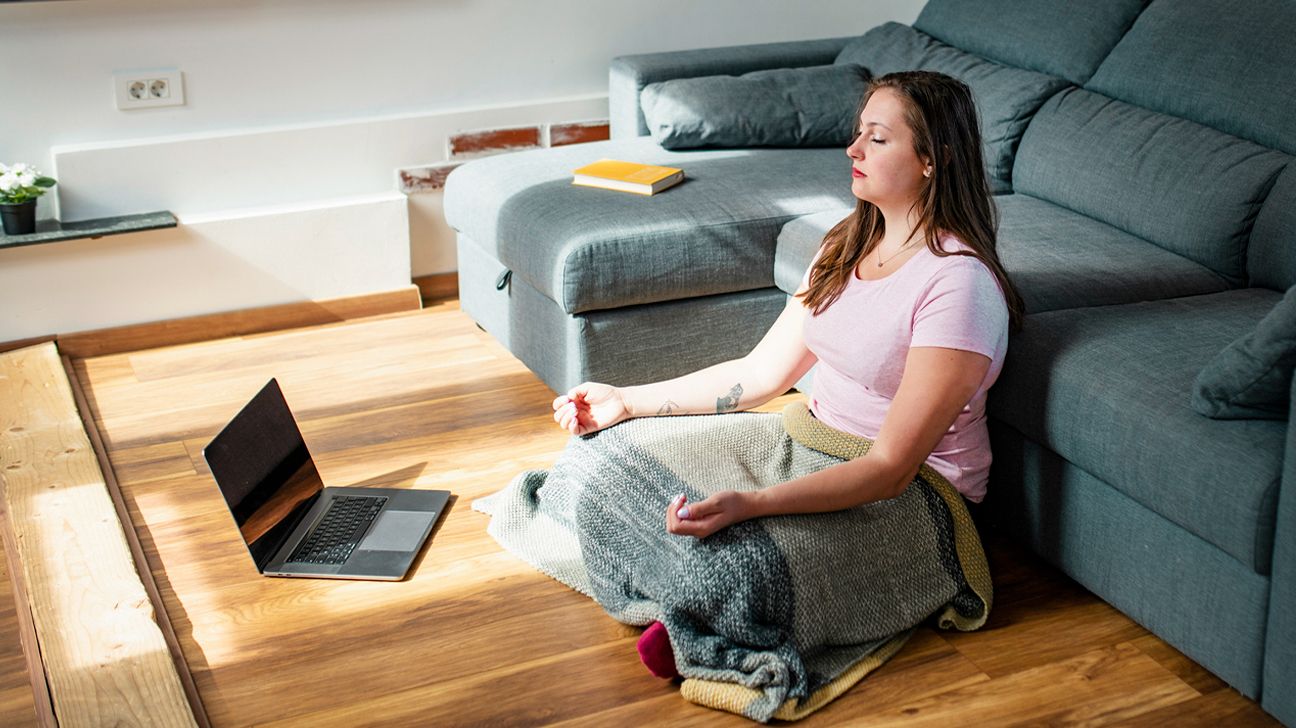5 Ways to Tend to Your Mental Health When You’re Living with Chronic Migraine
October 14, 2020
Content created for the Bezzy community and sponsored by our partners. Learn More

1226770427 Credit Image: AzmanJaka/Getty Images
Excruciating head pain, dizziness, light and sound sensitivity, visual disturbances, numbness, tingling, and the inability to think clearly — this is just an idea of what chronic migraine has been like for me.
And it has been a near-constant companion for almost 3 decades.
To be diagnosed with chronic migraine, a person has to experience 15 or more headache days per month, for 3 months, with 8 of those days having features of migraine.
The reality is, those with chronic migraine will have symptoms on more days than not. And chances are, as one attack ends, another is about to start.
These unrelenting symptoms have worn on me and have occasionally become the focus of almost all my attention. Migraine dictates so much of our lives and determines what we can and can’t do or accomplish.
Taking back some of that control by balancing our response to migraine can be the key to establishing and maintaining good mental health.
The following are some strategies I’ve established to keep chronic migraine from taking over my mental health and wellness.


Try guided meditation
I never thought I would be a proponent of guided meditation. I have a brain that’s like a hamster running on an exercise wheel — always running and never still.
Guided meditation seemed like something beyond what my overactive brain could manage.
I have since come to realize that meditation is all about practice, and it’s not about being perfect. It’s merely about redirecting myself and my straying thoughts back to my breath without judging my efforts.
There are various meditation apps that can help guide you through intentional meditations and even help you sleep at night.
Add more movement to your day
We’re often told to exercise to help control migraine, as well as improve mental health. The experts aren’t wrong — it’s just that the word “exercise” might need to be reframed.
I think the word “movement” is less intimidating to those of us that are experiencing daily migraine symptoms. Adding more movement to our daily lives sounds easier than exercise, which is usually associated with gyms, organized programs, or 5K races.
When I first started to exercise with chronic migraine, I was dragging myself out of bed and walking on a treadmill at 2 miles per hour. I would frequently have to stop to deal with a bout of nausea then get back to it.
I would never have been able to do this if I hadn’t committed to this goal of movement every day. It was scheduled at the same time each day so that I could check it off my list of things to do. I definitely noticed an improvement in my general outlook on life, even if it took a bit longer to see the benefits in reduced migraine symptoms.
Starting slow and working up to a quicker pace worked for me. Not only was it manageable, but I felt successful and like I was controlling this aspect of my migraine life.
Lean on people who make you feel good
Who lifts you up and makes you feel emotionally lighter and centered?
Spending more time with those people is a simple mental health tip to think about, but can be a little tricky to implement when dealing with chronic migraine.
Finding a low-symptom day when you can get together with a mental health buddy can be challenging. But it doesn’t always have to be a big day out. Sometimes a phone call or Zoom chat can be just what we need to perk up and find our balance. Being flexible is key.
Reconnecting with people on a personal and emotional level can help us to maintain a balance within our own chronic illness. It helps us to remember that we’re more than just our illness.
Find time for true self-care
Self-care is a buzz phrase that we frequently hear touted on social media. What does it actually mean?
Self-care is about prioritizing time for you. It doesn’t have to be a bath with flower petals floating in the water and lit candles all around — unless that’s the perfect thing for your self-care!
Self-care might be unplugging from social media for a bit, reprioritizing your work and home life, reading a book, taking a nap, walking the dog, watching your favorite show uninterrupted, or taking time for a craft.
It’s literally anything that makes you feel at peace and happy. And you’re worth every bit of that time.
Do something for someone else
When I have a mild to moderate attack and am feeling a bit overwhelmed about it, I can distract myself from the pain by focusing on someone else.
My favorite distraction is to bake for my kids, but I also love to make them ice cream.
The hardest part of this technique is getting up and committing to it. Once I’m up, I get so involved with the project that I feel less pain and less overwhelmed by the current state of my migraine. And the happiness and gratitude that I receive in return is another boost to my mental health.
The bottom line
These strategies are fairly simple to implement and can really give you a big return on your time investment.
Take back some control over migraine and your mental health by balancing your response to migraine. Start small and choose one strategy to start with today.
Article originally appeared on October 14, 2020 on Bezzy’s sister site, Healthline. Last medically reviewed on October 9, 2020.
Medically reviewed on October 14, 2020
2 Sources


Like the story? React, bookmark, or share below:
Have thoughts or suggestions about this article? Email us at article-feedback@bezzy.com.
About the author